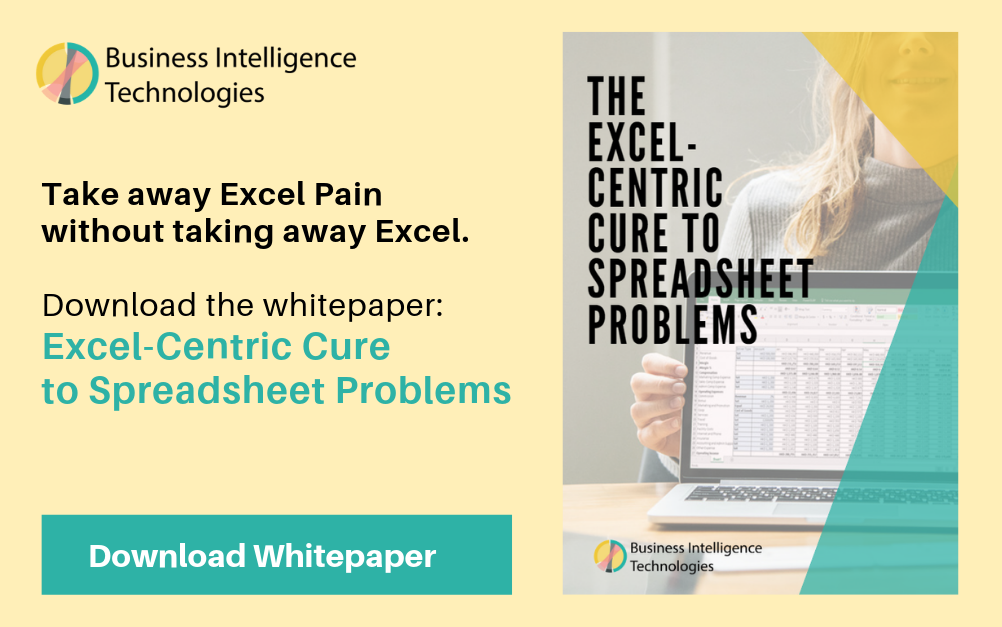
Have you ever come across an organization that uses spreadsheets on an enterprise scale, and yet the staff (typically in Finance) seems perfectly in control of the situation? It’s still quite rare, but what you will probably find is that they are not using “just Excel.” To make the everyday spreadsheet work at that scale, it must be turbocharged by an engine that delivers capabilities Excel lacks as an enterprise solution.
Firms that are fortunate to be in this position enable their end users to continue using Excel ”unimpaired”—so they can still apply their spreadsheet expertise… Meanwhile, the engine behind it provides the following capabilities that Excel does not have:
- Real-time data from various ERPs and legacy systems
- A multi-dimensional model of the business that can be modified at will
- A locus for complex business-rule formulas
- Provision for versions and what-if scenarios
- A layer of data/application security
- An environment for multi-user collaboration
At first glance, spreadsheet solutions look simple and achievable—something that expert Excel users can do by themselves. Indeed, it is possible to make a complex reporting model from scratch. The problem is that it cannot be controlled once it is shared with other users, or once ongoing revisions to the model are needed. Spreadsheet problems occur because these Excel files are passed around and revised to serve the unique purpose of each department or user. In addition, Excel files are static snapshots of data from a certain time, therefore keeping them up to date is a repetitive task. This makes maintaining spreadsheet reports a time consuming, error prone, and nearly impossible job.
While having a strong engine behind Excel is a step towards enabling Excel as an enterprise solution, the technology itself only opens up the possibilities of what can be done. Successful implementations require specialized technical skills in data management, multi-dimensional modeling, and process optimization. This is where consulting partners come in. Experts that specialize in the technology and can take full advantage of its capabilities will be certain to preserve the flexibility and accessibility of Excel. By collaborating with business users and understanding what they need, consulting partners can deliver efficient solutions that work and can scale as an organization grows.

Subscribe to our blog!
Don't miss a post. Receive the latest blogs from BI Tech straight in your inbox.
